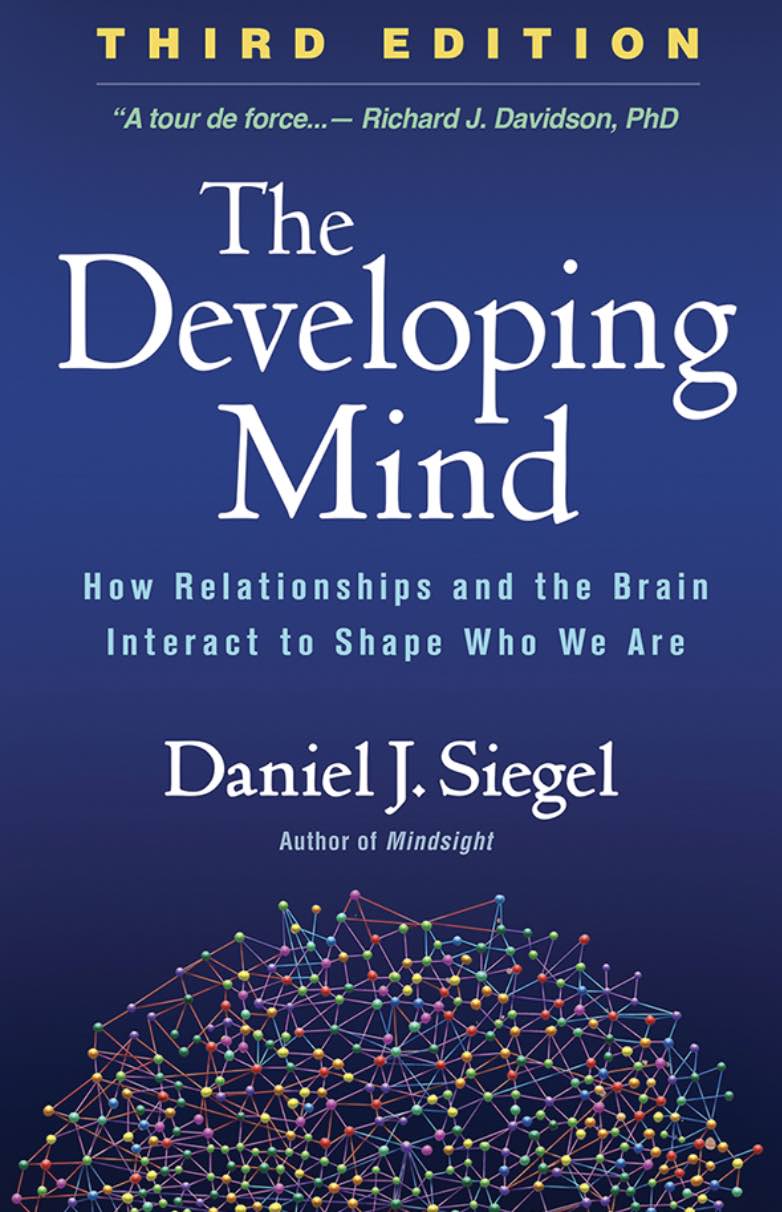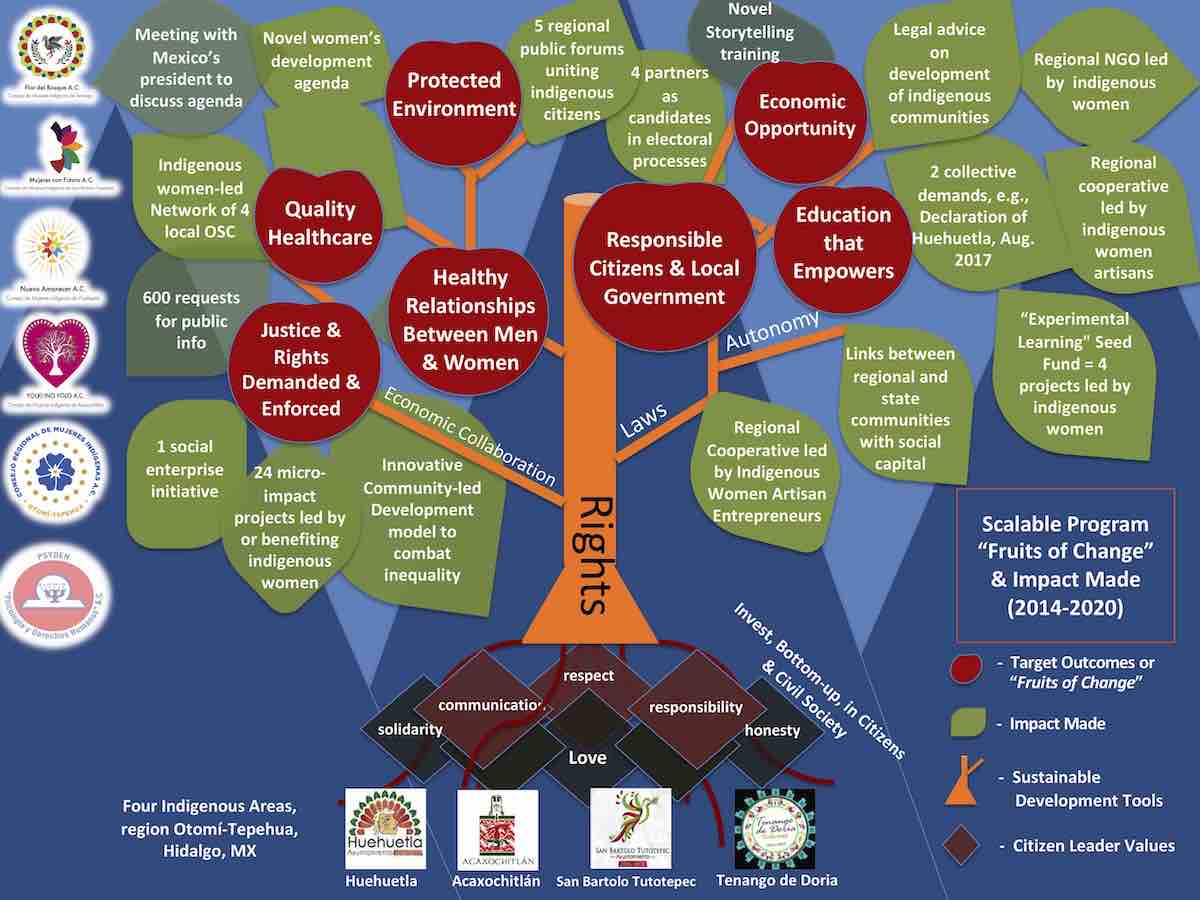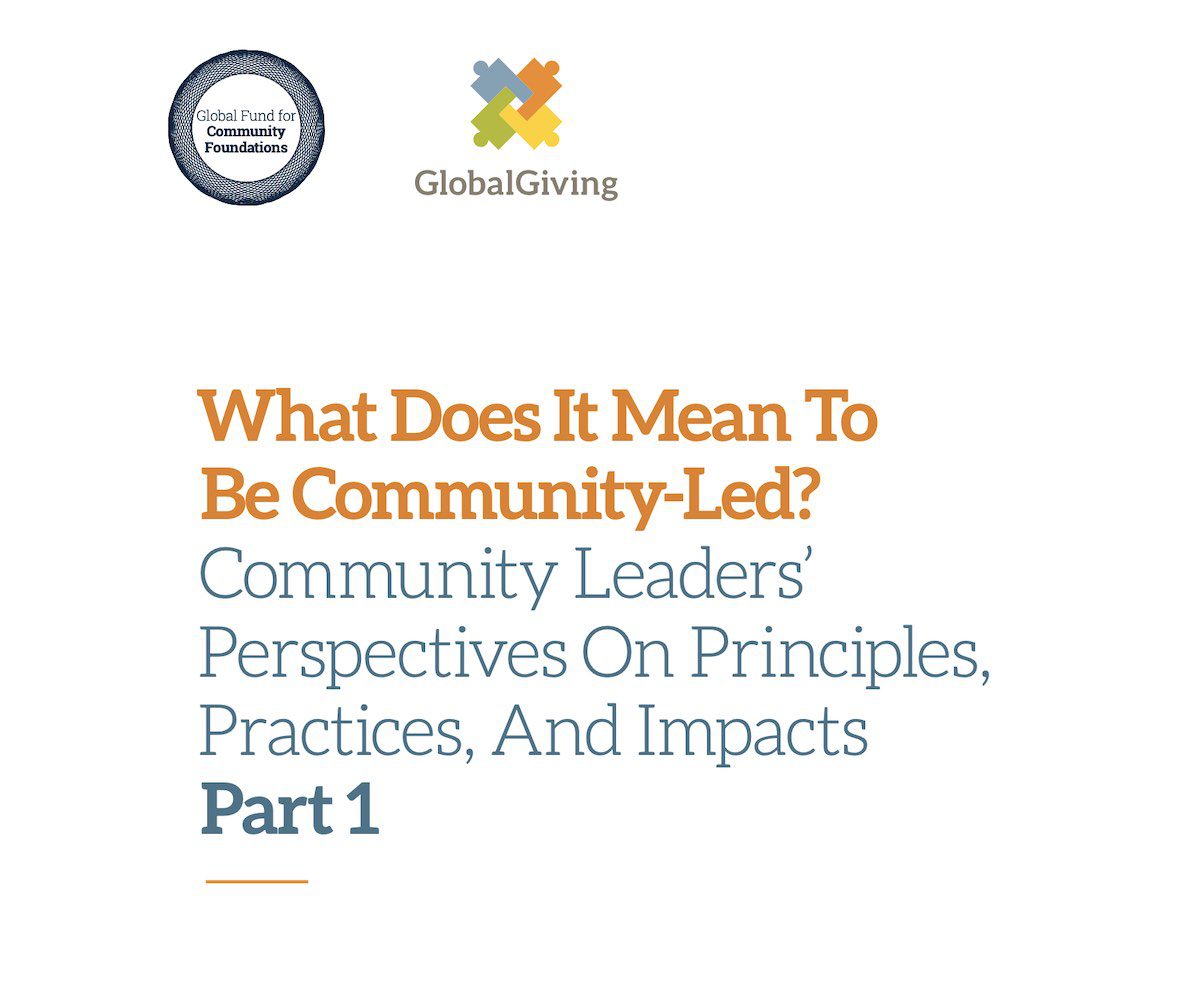Community-Led Development & Leader Values
PSYDEH’s leader training focused on six values — Communication, Solidarity, Responsibility, Honesty, Respect, and Love — are a core to what makes our women-empowerment work novel in the field of community-led development.
These values and their extremely important respective discipline practices like question thinking and active listening are foundational to our rights-based education, community organizing, and local project production work. They are the “how” citizens can do for themselves and others, metaphorically speaking, the soil for PSYDEH’s “Fruits of Change”, and the roots for PSYDEH’s impact on the indigenous women and their rural communities. We’ll turn to this metaphor in paragraph three.
 The underlying principles for this intellectual property are based on hard and soft sciences, loosely in line with what the American University’s Key Public Sector Executive Education program uses. For example, the field of interpersonal neurobiology made relevant by the ongoing work of such scientists as Dr. Dan Siegel and his book “The Developing Mind“, now in its 3rd edition, explains that relationships are essential to human consciousness growth in the form of brain development, followed by mental framework evolution, leading to better able to be in a relationship–with self, content, other. It’s a virtuous cycle, a process (within the body) that regulates the flow of energy and information. And this process is critical to any citizen, rich or poor, to use her rights when organizing to solve her own problems. If true, and we believe it is very much true, the question, then, is HOW do we develop relationships we need to facilitate community-led development. For PSYDEH, an answer lies in our thinking around the six leader values and their respective disciplines.
The underlying principles for this intellectual property are based on hard and soft sciences, loosely in line with what the American University’s Key Public Sector Executive Education program uses. For example, the field of interpersonal neurobiology made relevant by the ongoing work of such scientists as Dr. Dan Siegel and his book “The Developing Mind“, now in its 3rd edition, explains that relationships are essential to human consciousness growth in the form of brain development, followed by mental framework evolution, leading to better able to be in a relationship–with self, content, other. It’s a virtuous cycle, a process (within the body) that regulates the flow of energy and information. And this process is critical to any citizen, rich or poor, to use her rights when organizing to solve her own problems. If true, and we believe it is very much true, the question, then, is HOW do we develop relationships we need to facilitate community-led development. For PSYDEH, an answer lies in our thinking around the six leader values and their respective disciplines.
PSYDEH relays this depth of thinking and knowledge using a metaphor and core language co-created with local partners.  Indeed, when we reoriented our organization in 2014-2015, indigenous women helped us to co-develop a mechanism for information sharing in a way that can be understood by them and their communities. They chose the tree metaphor to symbolize why leadership values are the heart of rights-oriented, women empowerment work, while also selecting the names of the values pursuant to what is commonly understood in their areas. As a woman partner states:
Indeed, when we reoriented our organization in 2014-2015, indigenous women helped us to co-develop a mechanism for information sharing in a way that can be understood by them and their communities. They chose the tree metaphor to symbolize why leadership values are the heart of rights-oriented, women empowerment work, while also selecting the names of the values pursuant to what is commonly understood in their areas. As a woman partner states:
“PSYDEH has supported us in learning more about our rights and about ourselves so that we can help others. You learn, you lose your fear, you raise your voice, you do not allow yourself to be left behind.”
In short, our work makes an impact because we work to live and teach these six values as essential to relationships. They are THE key to achieving and sustaining human-led development. As the Kenyan scientist Wangari Maathai states: “Until you dig a hole, you plant a tree, you water it and make it survive, you haven’t done a thing. You are just talking.”
- Communication: Leading authentically by fostering self-awareness and transparency on needs, plans, and values.
- Solidarity: Learning and working in the community to achieve desired results.
- Responsibility: Being a force for change by embracing a standard of excellence and promoting responsibility for actions and solutions.
- Honesty: Acting with integrity, e.g., act pursuant to commitments; if such is later deemed impossible, we communicate and act on what is.
- Respect: Modeling desired conduct by asking direct, empathetic questions and listening for content and emotion on problems to foster dialogue on solutions.
- Love: Empowering others to action through choosing to grow our and our partner’s well-being.
 Don’t just take our word for it. GlobalGiving, the world’s leading crowdfunding platform for nonprofits, is in the midst of researching if and why and how community-led development is key to making sustainable progress. And they recently issued preliminary research findings. Not surprisingly to PSYDEH, a key to making this kind of development work, its essence, is relationships.
Don’t just take our word for it. GlobalGiving, the world’s leading crowdfunding platform for nonprofits, is in the midst of researching if and why and how community-led development is key to making sustainable progress. And they recently issued preliminary research findings. Not surprisingly to PSYDEH, a key to making this kind of development work, its essence, is relationships.
